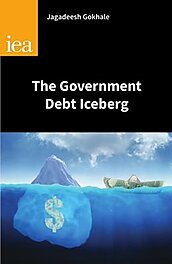Nobody who has even a passing acquaintance with economics could fail to realise that Western governments are highly indebted. Current generations have been consuming at the expense of future generations. However, just how indebted are we? The government measures how much it has borrowed to meet past spending commitments, but it does not measure how much money it needs to meet all the future pensions and healthcare promises it has made to tomorrow s older generations. Furthermore, no funds have been set aside to provide for these costs. Governments are allowed to produce accounting information in such a cavalier fashion, using methods that would be illegal for private sector companies. Fortunately, though, scholars have been able to examine the detail of government policy and the financial commitments of future governments in order to determine just how indebted we are. This IEA publication brings such calculations to life by showing by how much spending will need to be cut and taxes raised in order to make the government s fiscal position sustainable. This work should be of interest to politicians, to students and teachers of economics and, indeed, all who are interested in public policy and the sustainability of Western economies.
The Government Debt Iceberg
About the Author
Jagadeesh Gokhale is recognized internationally as an expert on entitlement reform, labor productivity and compensation, U.S. fiscal policy and the impact of fiscal policy on future generations. He worked with Cato’s Project on Social Security Choice to develop reforms for programs such as Social Security and Medicare. Gokhale served in 2002 as a consultant to the U.S. Department of Treasury and in 2003 as a visiting scholar with the American Enterprise Institute (AEI). He was the senior economic adviser to the Federal Reserve Bank of Cleveland from 1990 to 2003.
